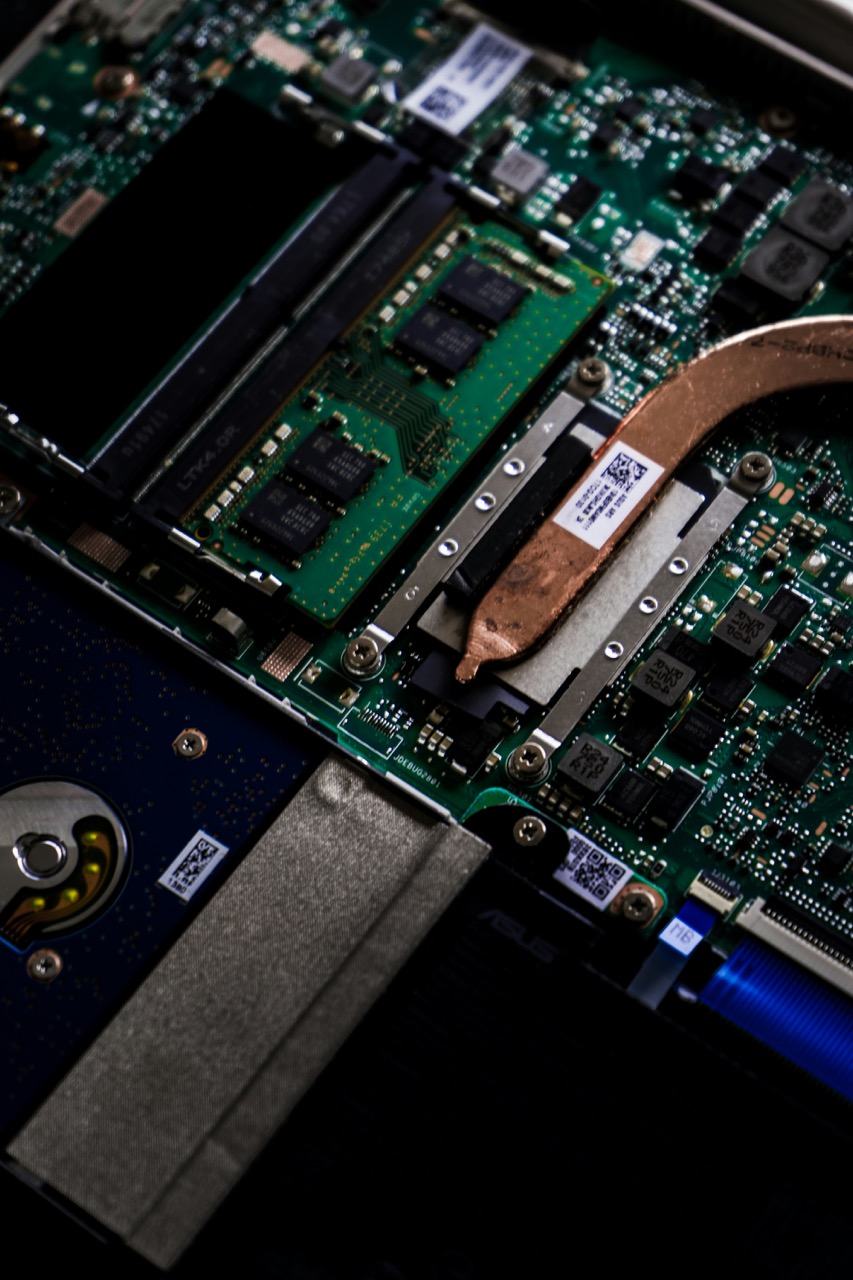Q: Why do programmers frequently confuse Halloween and Christmas?
A: Because OCT 31 = DEC 25
What is Electrical and Computer Engineering (ECE)?
Electrical and Computer Engineering (ECE) underpins the foundation of many of the modern technologies we use every day. The “electrical” half involves concepts like signals, materials science, and power, and the “computer” half involves programming, computer science, and computer hardware. The ECE major offers opportunities in a diverse range of industries and research areas; ECEs create signal processors for wireless systems, tools for medical diagnostics and imaging, control systems for automated manufacturing, consumer electronics, high-speed communication systems on Earth, underwater, and in space, and more!
The major includes five focus areas:
- Photonics and semiconductor physics
- Control, communications, and signal processing
- Electromagnetics and energy
- Computer hardware and networks
- Software
The major offers a broad range of technical electives. Courses are taught by world-renowned professors from U of T’s Department of Electrical & Computer Engineering and the Department of Computer Science – two of the largest and top-ranked departments in Canada. Students have access to advanced facilities and close research collaborations between professors and global partners, including the Fujitsu Co-Creation Research Laboratory. Students also benefit from the university’s affiliation with organizations like the Vector Institute, U of T’s SciNet supercomputing consortium, and the vibrant tech and startup landscape in Toronto.

Why Choose ECE?
Why Choose This Major?
You’re interested in:
- everything to do with computers, including both the hardware and software sides
- research related to electricity and magnetism, on topics such as superconductive materials, wireless systems and signals, and electromagnetic radiation
- modern technology such as self-driving cars, personal electronics, and more.
- a flexible major that will allow you to follow almost any field you want and has a diverse range of applications across nearly every industry
- creating a cutting-edge tech startup with an impact upon the world
EngSci ECE is quite different from the Core 8 Computer Engineering and Core 8 Electrical Engineering majors. In EngSci, the foundation years enable you to learn more advanced topics later. Furthermore, the core courses in EngSci ECE cover fundamentals of both the EE and CE majors, so that EngSci ECEs can legitimately claim the “ECE” label!
Where Can This Major Take You?
Recent EngSci ECE graduates have pursued graduate studies at top universities such as:
- Carnegie Mellon University
- Cornell University
- Columbia University
- MIT
- Stanford University
- UC Berkeley
- University of Toronto
- University of Waterloo
Sample employers for recent ECE graduates include:
- AMD
- Apple
- McKinsey & Company
- Meta
- RBC
- Toronto Hydro
EngSci ECE graduates have also started companies such as SoundHound and Ergeon.
Upper-Year Insights

EngSci ECE 2T4 + PEY, Summer Researcher @ U of T, Electrical Lead @ Blue Sky Solar Racing
“The EngSci ECE major is structured such that you get a broad exposure to various subfields within the discipline. In my third year, I was required to take core courses that covered every fundamental aspect of ECE, giving me a [deep and broad] understanding of the field. Having the ability to appreciate a system at all its different levels – from the semiconductor level to the hardware and up to the software level – has been perhaps the most rewarding experience for me. This holistic understanding allows me to see how each component and layer interacts and contributes to the overall functionality of a system.”
“One of my favorite courses was ECE350 (Semiconductor Electronic Devices). These devices are the fundamental building blocks for almost all the electronics that we use. I find the intricate and complex design of these nanometer-sized structures incredibly fascinating.“
Courses in Year 1 and Year 2 That Relate to Electrical and Computer Engineering
Year 1
ESC180 will be your first programming course in university. This course gives you an introduction to programming using Python, which will open up the world of computer software.
ESC190 will be your second programming course. This course introduces the C programming language, which is much more low-level; as you learn C, you’ll learn more about computers themselves, including memory management and runtime complexity, as well as many algorithms and data structures found in modern software.
ECE159 will start from the basics of circuitry such as DC circuit analysis with different methods, before eventually leading to more intermediate topics such as Op-amps, transient circuit analysis, and AC circuits. The practicals are very hands-on and will require you to build many interesting circuits and analyze them with a variety of electrical measuring instruments. Combined with the theory-focused lectures, this course gives you a strong foundation for the hardware side of ECE.
Year 2
ECE253 combines features of circuits with programming, bridging the gap between the small electrical components that build computers and the programming we use the components for. You’ll learn everything from basic logic circuits to logic computation to computer processors. You’ll also learn to program simple processors in the ultra-low-level Assembly language.
AER210 combines two concepts. The first half of the course is an extension of Calculus II and focuses on vector calculus, which is math in higher dimensions. Electrons, wires, insulators, and other objects in electronics exist in three dimensions, so this math is crucial.
The second half of the course covers fluid mechanics, which is the study of the motion of fluids (liquids and gases). Many things in fluid mechanics are analogous to things in electricity. For example, conservative fields appear in both fluid mechanics and electric field theory.
ECE259 combines fundamental physics with useful techniques from vector calculus to explore features of electricity like electric force, voltage, current, and field strength.
Interesting Courses in This Major
ECE421: Introduction to Machine Learning
This course introduces the theory, algorithms, and computational toolboxes of machine learning, balancing the practical and theoretical approaches, along with experience with relevant software packages. Supervised and unsupervised learning models will be covered.
ECE446: Sensory Communication
This course covers everything related to acoustics, such as signal processing, electroacoustic transducers (such as speakers and microphones), speech processing and recognition algorithms, noise and hearing, and electrical models of acoustic systems. Fun fact: this course can be counted towards a Certificate in Music Technology!
ECE463: Electric Drives
This course discusses how electric drives comprise electric machines, alongside power electronic actuation, to enable the control of mechanical motion. Topics include electro-mechanical mechanisms for torque production, DC machine analysis, motion control, and much more.
ECE532: Digital Systems Design
This course covers practical applications of advanced topics in digital systems design, such as embedded processors, hardware/software interfacing and interactions, software drivers, embedded operating systems, and much more. You’ll implement significant design projects on FPGA development boards.
See the full course listing for each EngSci major in the academic calendar.
Where To Get Some Experience Before Deciding?
There are so many clubs involving ECE that we couldn’t list them all. For example, almost all design teams have sub teams for circuitry and programming, so if you’re interested in ECE, you can join just about any design team and get relevant experience. Your choices can include software and AI-focused teams that’ll give you experience with programming. Here’s a short list of design teams, all of which have strong ECE components.
- U of T Blue Sky Solar Racing Team
- U of T Machine Intelligence Student Team (UTMIST)
- U of T Human Powered Vehicle Design Team (HPVDT)
- U of T Aerospace Team (UTAT)
- U of T Formula SAE Racing Team (UTFR)
- U of T IEEE Student Branch
- U of T Robotics Association (UTRA)
Visit the Skule Clubs and Design Teams pages to find more extracurriculars.

Check out the EngSci majors website here for more info:
